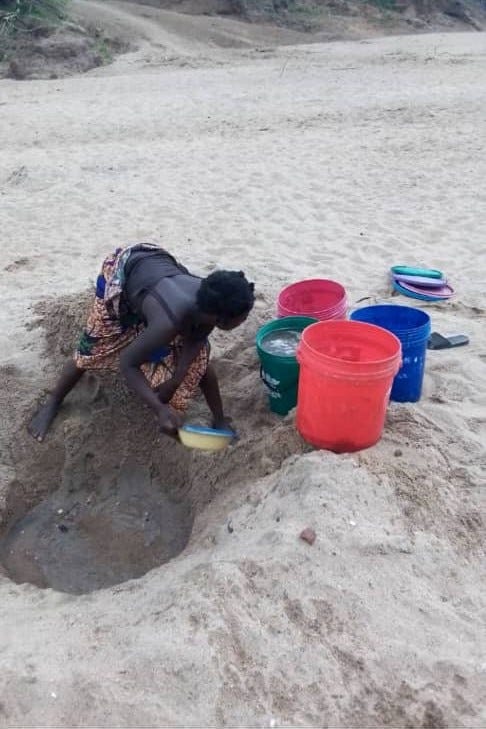Struggling for Water: Rural Communities Fight to Quench their Thirst in Ntcheu
With climate impacts and lack of investment exacerbating scarcity, a long road still lies ahead to quench the thirst of communities like those in Ntcheu.
Ntcheu, Malawi - The sun beats down relentlessly on Doreen Phiri's back as she walks the long miles from her home in Bwanje area carrying two large yellow jerry cans, writes Gift Kaimira.
Her destination is the shores of the Bwanje River, where she will fill the containers and balance them on her head for the uphill journey home.
This arduous task of fetching water has become a daily routine for Phiri and other women in this rural community located in central Malawi's Ntcheu district.
With limited access to clean water sources like boreholes or piped lines, they have no alternative but to drink and cook with water from the open river, risking their health and safety.
"The struggle is unbearable. We walk long distances in the heat every day just to get water for basic needs," says Phiri, exhaustion evident in her voice.
"If we don't get clean water, diseases spread easily here."
Ntcheu is not alone in facing these water woes. Across much of rural Malawi, inadequate water infrastructure and pressures of climate change have left communities vulnerable.
According to the Central Region Water Board (CRWB), around 60% of residents in their supply area still lack direct access to an improved water source.
Edison Mombera, CEO of CRWB, says financing shortfalls are a core challenge in expanding infrastructure.
An estimated K1.2 trillion is needed for full water coverage in the region under their jurisdiction.
He notes pressures on water resources are further exacerbated by deforestation which impacts river flows.
"Many of the rivers we abstract from like Mpamadzi and Maliko in Ntcheu are drying up due to effects of climate change induced by loss of forests," explains Mombera.
"We need to sustainably protect these catchment areas for long term water security."
At the community level, residents like Phiri and Dorothy Banda have grown tired of enduring these hardships.
They want commitment from authorities to remedy the situation and secure their basic human right to water.
"Please connect us to the piped network or drill more boreholes. We cannot continue risking disease just to get water every day," implores Banda.
While authorities acknowledge the hurdles, they remain committed to improving management of water resources and infrastructure through projects like the $8.9 million initiative recently launched with World Bank assistance.
Deputy Minister Liana Kakhobwe Chapota emphasizes the importance of working closely with communities.
As Phiri and other women resume their daily struggle, solutions cannot come soon enough for the rural households left behind in the quest for universal access to clean water.
With climate impacts and lack of investment exacerbating scarcity, a long road still lies ahead to quench the thirst of communities like those in Ntcheu.



